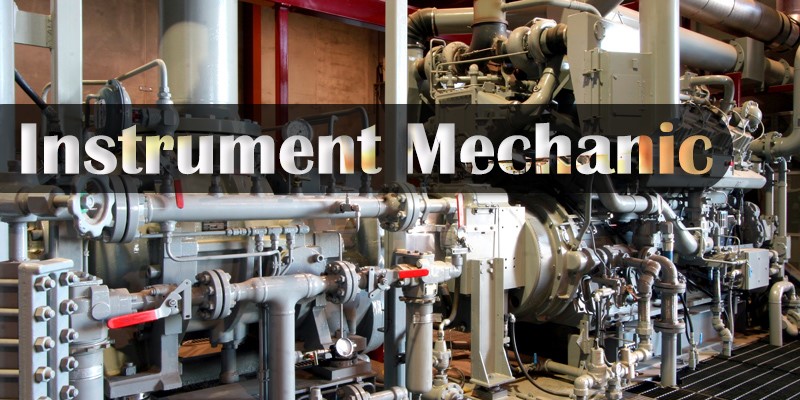Instrument Mechanic

Syllabus:
Syllabus for ITI Trade Instrument Mechanic
Trades Duration:
Two Year
Minimum Qualification Eligibility:
10th Passed under 10+2 System with Science & Maths
Trade Type:
Engineering
ITI trade Instrument Mechanic is powered by NCVT. ITI trade Instrument Mechanic is a job oriented trade ITI trade Instrument Mechanic is suitable for government job and private job. This ITI trade Instrument Mechanic is very powerful for self-empowerment. This ITI trade Instrument Mechanic is perfectly design to fulfill industrial requirement of Indian Industries as well as International industries.
Mechanic Precision Instrument, General; tests, repairs, overhauls and assembles various precision instruments and their parts for efficient performance. Examines instrument for defects. Dismantles components and cleans them in appropriate fluid such as petrol, kerosene etc. to find out extent of damage or wear and tear to parts. Removes minor defects of parts by grinding, filing, drilling, etc. and replaces worn out and damaged parts. Adjusts position of various parts using screwdriver, spanner etc. and assembles instrument to form complete unit. Makes simple electrical connections, solders contact points and performs other tasks as necessary. Tests performance either by visual observation or by conducting simple electrical and mechanical tests and ensures that repaired or assembled instrument conforms to prescribed efficiency. May make new components and assemble new instruments. May specialize in any particular type of instrument like mechanical, hydraulic, pneumatic, electrical, optical, orthopedic etc.
Technician Instrumentation; dismantles removes and replaces a range of instruments and faulty peripheral components down to unit and component level, setting up test equipment, troubleshooting components of instruments, calibrating them and also preparing service reports and accurately documenting parts replacement and repair.
Mechanic Precision Instrument, Mechanical; makes, alters and adjusts mechanical instruments or mechanical parts of electrical and optical instruments by accurate milling, filing, grinding, lapping and other processes. Studies drawings or samples and examines precision instrument like balance, meters, pressure gauges etc. for defects. Dismantles instrument, cleans metal components in petrol, kerosene oil or otherwise and checks them to find out extent of damage and further serviceability. Makes new parts on lathe milling or other machines, if necessary. Sizes and fits metal parts by filing, scraping, grinding lapping etc. as necessary and ensures their desired accuracy by checking with precision measuring instruments shadow graph and other highly perfect devices. Assembles parts to form complete unit. Gets electrical components repaired by Electrician. Fits electrical and optical parts to instrument and adjusts them as required. Texts repaired or assembled instrument for clarity or vision sensitivity, correct meter and scale readings etc. as required and ensures stipulated performance within prescribed limits. Makes necessary adjustments and seals meters to avoid manipulations. May specialize in particular type of instruments like balance, pressure gauges, meters, the odolites etc. May make new instruments from blue prints.
Functional Tester; is responsible for checking functions of manufactured industrial equipment such as UPS, inverter, energy meter, PLC, oscilloscope, control panel. The individual at work tests specified functions of every product being assembled on the production line.




